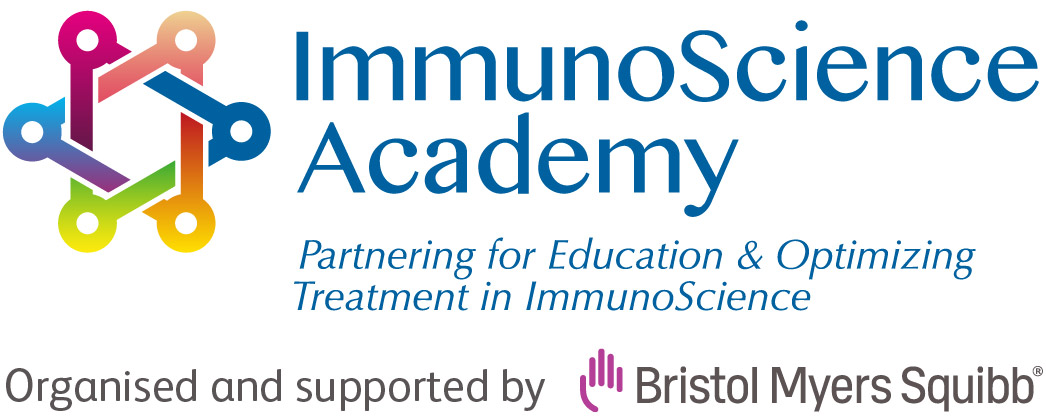
Educational Meetings
COVID IMPACT ON CANCER
16 December 2020
Materials from past ISA meetings are only available for your information, it reflects the state of sciences at the time of the meeting.
The 3rd ImmunoScience Academy national meeting planned ‘in person’ on 16 December 2020 was turned on his head due to the COVID-19 pandemic. The meeting took place in a fully virtual setting.
As COVID-19 turned ISA’20 inside out, the experts did the same with COVID-19.
View below the slides and videos per expert-topic of this webinar on the undeniable most hot topic in 2020, seen through the eyes of the ImmunoScience Academy experts. Read the full article here

GENERAL OVERVIEW OF CANCER PATIENTS IN COVID-ERA
Speaker : Prof Ahmad Awada | Medical oncologist
Professor Awada kicks off with a general overview on COVID, discussing short and long term implications. He talks to adoption of COVID-19 approaches and organisation beyond the pandemic.

COVID-19 IN THE EYES OF AN IMMUNOLOGIST
Speaker : Prof Pierre Coulie | Immunologist
Prof Coulie covers COVID-19 at a cellular pathway level, its interaction with the immune system and impairment of multiple organ function, its manifestations (moderate, severe) as well as the clinical symptoms. Professor Coulie also summarises the innate and adaptive immune responses to the virus. He finishes by providing an overview of the different types of COVID-19 vaccines and their functioning.



MANAGEMENT OF CANCER PATIENTS IN COVID-19 ERA BLOOD CANCER
Speaker : Prof Tessa Kerre | Hematologist
Professor Kerre starts by addressing the topic “Are hematologic cancer patients at higher risk to be infected with SARS-CoV-2?”
Furthermore she points out the COVID-19 prevalence and mortality in patients with cancer and the effect of primary tumour subtype and patient demographics. The Belgium Hematology Society registry and EBMT registry are discussed. She raises the question whether we should adapt treatment of cancer during the COVID pandemic or not and closes the presentation by guiding us through a treatment algorithm? And last but not least, what about vaccines?

MANAGEMENT OF CANCER PATIENTS IN COVID-19 ERA SOLID TUMORS
Speaker : Dr Stefan Rauh | Medical oncologist
Dr Rauh addresses the management of cancer patients with solid tumors in COVID-19 era. He covers the protecting measures to consider and how to perform screening in cancer patients. He discusses the associated risk for cancer patients to be infected with SARS-CoV-2 and that these patients experience greater severity in terms of the course of disease and poorer outcomes of COVID-19. He focuses on how to adapt treatment of cancer patients during the COVID-19 pandemic, specific points of attention in the treatment and the potential harm if the treatment is delayed. He also provides data on vaccination in immunocompromised patients.



MANAGEMENT LUNG CANCER PATIENTS IN THE ERA OF COVID-19
Speaker: Prof Johan Vansteenkiste | Respiratory oncologist
Through interactive cases, Prof Vansteenkiste discusses the practical considerations and complexities that COVID-19 brings to the management of patients with lung cancer. He summarises what is currently known through the collection of registry data as well as the current recommendations on diagnostic work-up, treatment and follow-up, developed by panels of clinical experts.

MANAGING PNEUMONITIS IN IMMUNE CHECKPOINT INHIBITOR-TREATED PATIENTS IN TIMES OF COVID-19
Speaker: Prof Els Wauters | Respiratory oncologist
Professor Wauters takes us through an interactive patient case study emphasising the importance of performing a differential diagnosis of irAE pneumonitis and COVID-19 pneumonia where relevant. She highlights the similarities and distinct differences between the two.



DIFFERENTIAL DIAGNOSIS IMMUNE-RELATED AE AND COVID-19 MANIFESTATIONS IR DIARRHEA >< COVID GI SYMPTOMS
Speaker : Prof Eric Van Cutsem – Digestive oncologist
Prof Van Cutsem discusses immune related diarrhea and COVID-19 gastrointestinal symptoms. He addresses the mechanisms of increased immune system activity and the role of checkpoint-blocking antibodies in the T Cell activation from a gastrointestinal perspective. Moreover, the clinical picture, grading and the management of the immune related diarrhea is reviewed. He also covers the clinical characteristics, pathogenesis and the prognostic implications of COVID-19 associated diarrhea, as well as some recommendations for its management and treatment with ACE2 inhibitors.

